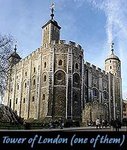Undertakers show their wares at the industry's biggest-ever gathering
Oliver BurkemanSaturday June 16, 2007
The Guardian
"I'll never forget the first time I exhibited these ones," said Mary Tomes, of Colourful Coffins, gesturing at a display of caskets covered in vivid nature photographs, sports team colours, and sparkling holographic foil. (Another vendor, a few feet away, was exhibiting a coffin designed to look like a KitKat.) "I went to a big meeting, took them along, and when I unveiled them, everybody just sat and stared. Nobody said anything for ages. My husband said, 'Maybe you better sit down.' But eventually someone asked how much they cost, and after that, it all just took off."
Many years ago, Ms Tomes said, "I decided that if anything ever happened to me, I wanted a bright yellow coffin with white daisies. But until recently the technology just wasn't available."
It would be wrong to suggest that pallid gents in pinstripes were entirely absent from the National Funeral Exhibition 2007, which runs until tomorrow. From the gleaming new hearses arrayed outside the venue to the man playing soft organ music on a Yamaha Clavinova, the traditional British way of death was never far away. Most of the £1.2bn we spend each year on funerals still goes towards conventional ceremonies. Even so, there was a distinct sense of long-standing taboos being eroded: of new technologies, and new ways of thinking about dying, being tentatively embraced.
These days, the granite slab above your grave can feature a bust made from a 3D scan of your head, and the web address of a professionally designed online memorial site. A company called Ecocoffins, part of the growing trend for green funerals using biodegradable caskets and woodland burial sites, will sell you the "signature coffin", made of ultra-strong reinforced cardboard, on which funeral guests can write a final message. Or your family can keep your ashes in an urn in the shape of a football.
Innovations like these are badly needed, too, because the funeral industry is facing serious challenges. For a start, there's the costly problem of mercury emissions from dead people's fillings, which crematoriums are legally obliged to minimise, and which was the subject of a seminar at the exhibition yesterday. Then there was the news last week that our cemeteries could be full in 30 years, prompting a government proposal to introduce "double-decker" graves.
Above all, there's the phenomenon no funeral director likes to contemplate: the country's falling death rate. "And it's going to get even worse," sighed Simon Albin-Dyer, of the venerable South London funeral company F Albin & Sons. It will be at least the end of the decade before the baby boomers "come on stream," said one official of the National Association of Funeral Directors, adding one more euphemism for dying to an already long list.
Changing demographics could also prove to be what you might, if you thought you were being clever, call another nail in the coffin of the traditional British funeral. "The East End, where we're based - it's changing," said John Cribb, who owns a fleet of vintage motor-powered and horsedrawn carriages. "There's the strong Muslim influence - well, that takes away business from us. And the eastern European people, they drive over in the car, pick the body up and take it back home. Which doesn't do us a bit of good."
Thinking laterally, the Cribb family are expanding into Ghana, where funerals can attract hundreds of guests from miles around, and where, collectively per funeral, "they spend more than they do over here". Another expanding niche is "repatriation services" - arranging for bodies to be flown from their country of death to their country of burial. Whenever you take a long-haul international flight these days, said Mr Albin-Dyer, "it's more than likely you've got deceased on board".
Strolling the aisles were Peter Vincent, a funeral director from Tasmania, and his wife, Tara. "We're over here on our honeymoon," said Mr Vincent, "and we thought, what could be more romantic than - no, I'm kidding. But it's all very interesting." Like almost every funeral director I met, Mr Vincent inherited a family business, and he gave the consensus explanation for the satisfactions of the job, too. "My father always used to say it's the only industry where people say 'thank you' and mean it," he said. "It's just that thing of being able to help people at one of the worst moments in their lives. You're doing what you can to help them with their grief."
And grief was not really banished from the cavernous exhibition hall, however much it was obscured by layers of euphemism and corporate-speak. On Mary Tomes's exhibition stand, the brightest colours adorned the saddest caskets: child-sized coffins covered with pictures of angels and teddy-bears.
Working in such close proximity to death tends to elicit one of two responses from the public, said Richard Arnold, an embalmer whose recent tasks have involved preparing the bodies of British soldiers in Iraq for the journey home. "There are the people who say 'Oh, that's what you do? How interesting!' and ask you loads of questions. And then there are the ones who say 'You're disgusting'. They don't want to come near you. They don't want to have anything to do with you."
Standing beside a stainless steel, hi-tech autopsy table - which Mr Arnold's employer, Omega Holdings, was selling for £6,500 - he reflected on why he had chosen to join the ranks of Britain's death professionals. No matter how many challenges the industry faces in the modern world, he noted incontrovertibly, its existence in some form is hardly in question.
"My parents said to me: 'You've got to do something that everybody wants'," he said, matter-of-factly. "And I didn't fancy being a midwife."


No comments:
Post a Comment